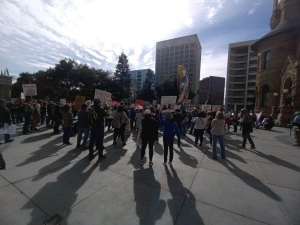Due to the economic crisis and the social issues it generated, more and more countries in the European Union are faced with an acute shortage of agricultural workers and a phenomenon which is intensifying: transnational worker migration.
Southern countries such as Spain or Italy, which until recently attracted labor from Eastern Countries such as Romania or Bulgaria, or from non-EU member states such as the Republic of Moldova, for farming seasonal work, are now feeling a shortage in this sector.
Amid the crisis, part of the cheap workers of the Eastern countries has either returned to their native countries, or, started migrating to Northern Countries for a change, which offer higher wages and better work conditions, leaving countries on the Southern border of the Union which were previously used to large upsurges of seasonal workers with a workforce deficit in the agricultural sector.
Between October 8th - October 11th, in Rome, a reunion of the Copa-Cogeca - the largest agricultural employers association of the EU - an event where officials of the various farming branches of the EU discussed the new issues of European Agriculture: workforce shortage, worker migration as well as illegal immigration.
Professional farming associations of Spain and Italy warned that agriculture is beginning to "lose ground" to other economic sectors in terms of workers, due to wages and legal requirements.
"The farming sector is currently experiencing a workforce deficit higher than that of other EU sectors", officials of Copa-Cogeca said.
Referring to workforce shortage, agricultural producers said that a solution to lower the deficit would be to bring in workers from the Caucasus or from Africa, by signing partnerships with non-EU states such as Georgia and Senegal.
Concerning workers from Central and Eastern Europe - Romanians, Bulgarians, Poles etc. - Western farming is looking for solutions to harmonize social contribution legislation.
A telling example is that of Romanian strawberry gatherers, for instance, who work six months a year in Spain and Italy.
During those six months, workers legally hired, would pay social security contributions, in the countries where they worked, but once they got back to their native countries, their contribution would be returned.
Given that most of the time, the returned social security contributions would be spent instead of deposited in a retirement account, in the long run Europe could be faced with the problem of a large number of retired seasonal workers with low pensions, for which the EU would have to find a special solution, along the lines of a minimum guaranteed pension.
Officials of Copa-Cogeca said that there are talks about unifying the EU legislation in order to have the social security contributions of seasonal workers be transferred directly into an account in their country of origin country.
Worker migration has increased due to the crisis, as the conflict between Northern and Southern countries with developed agriculture, has deepened, as Southern countries are losing workers to Nothern countries.
Italian and Spanish officials of Copa-Cogeca showed that while their countries had immigration levels of around 70%-80%, 70% of the European funds for immigrants would go to Northern countries.
The Spanish and Italian officials asked the official of the European Commission who attended the Copa-Cogeca debate, Francois Ziegler, to find a solution to change this aspect.
Spanish and Italians warned that due to unfair distribution of immigration funds, illegal migration has increased and tends to become a habit, especially in their countries.
The EU is increasingly worried by illegal labor, due to missing out on welfare contributions.
The reason?
Currently, three EU workers pay for the welfare of one EU retiree.
European Commission estimates show that this ratio could change to 1:1 in the future (2015)...
• Minimum wage for Agriculture 720 lei in 2010?
The minimum wage for agriculture workers could increase in 2010, in spite of the economic crisis and issues in the sector. Whereas in other sectors of the Romanian economy, the minimum wage will mostly likely remain at 2009 levels, (640 lei), due to the economic crisis, the average wage could increase to 720 lei. Unions and professional associations have begun negotiations on this matter. The president of the Union Federation "Agrostar" said for BURSA, that during their negotiations with the professional associations, represented by FNPAR (National Federation of Agricultural Producers), unionists will request that the minimum wage across the economy be increased to 720 lei. Ştefan Nicolae said: "The union confederations requested a minimum wage of 740 lei for 2010, however in many economic sectors, the professional associations are not willing to increase the minimum wage from its current level of 640 lei. We are negotiating a raise to 720 lei". In turn, the officials of the FNPAR said that negotiations with the unions could be completed successfully by November.


























































